Colostrum (also known as “first milk”) is the milk that mammals produce right before giving birth. It’s important for newborns to consume colostrum because the substance is packed with the mother’s antibodies, insulin-like growth factors, bioactive enzymes, fat and other vital nutrients that don’t exist in regular milk.
In other words, colostrum acts like an immunization for newborns.
What I wasn’t aware of until recently is the fact that colostrum is also available as a dietary supplement (albeit from cows and not humans), and that there are purported benefits associated with bovine colostrum supplementation, even among adults.
As a result, I decided to dig into the scientific research on the subject and test the high-quality bovine colostrum supplements made by Equip and Sovereign Laboratories.
This article is about why colostrum is good for you. If you’re looking for product recommendations, check out my list of the best colostrum supplements to see my top picks for specific use cases, such as improving gut health, supporting your immune system while traveling and more.
Why Colostrum Is Important for Newborns
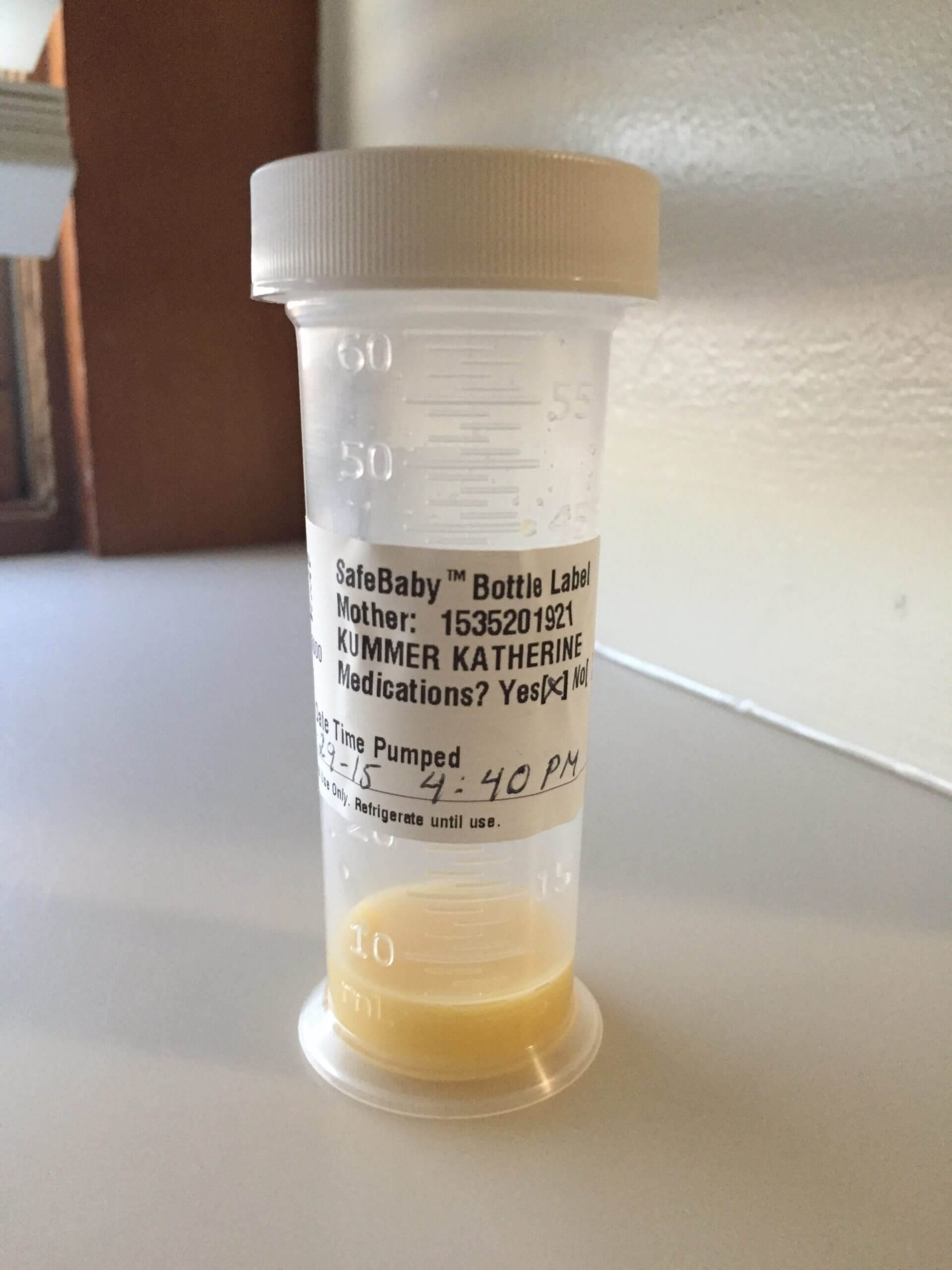

Colostrum has so many scientifically-proven health benefits that doctors even give it to babies who are born prematurely and unable to nurse.
When our son Lucas was born nine weeks before his due date, my wife used a pump to extract colostrum, which our doctors fed to him via a stomach tube.
In addition to the antibodies and immunoglobulins in colostrum, it also serves as a vital source of protein, carbohydrates (lactose), fat and fluids for newborns.
In case you’re wondering, 100 ml of human colostrum has approximately 59 calories from 5.3 grams of carbs (lactose), 3.7 grams of protein, and 2.9 grams of fat.
Note that the lactose in colostrum and human milk doesn’t usually cause digestive issues for breastfed babies because they also make a sufficient amount of lactase, the enzyme that helps break down lactose into glucose and galactose.
As a result, there’s zero doubt within the scientific community that colostrum has significant health benefits for newborns, and that its absence can lead to several health issues later in life, including compromised immune systems.
Human Colostrum vs. Bovine Colostrum
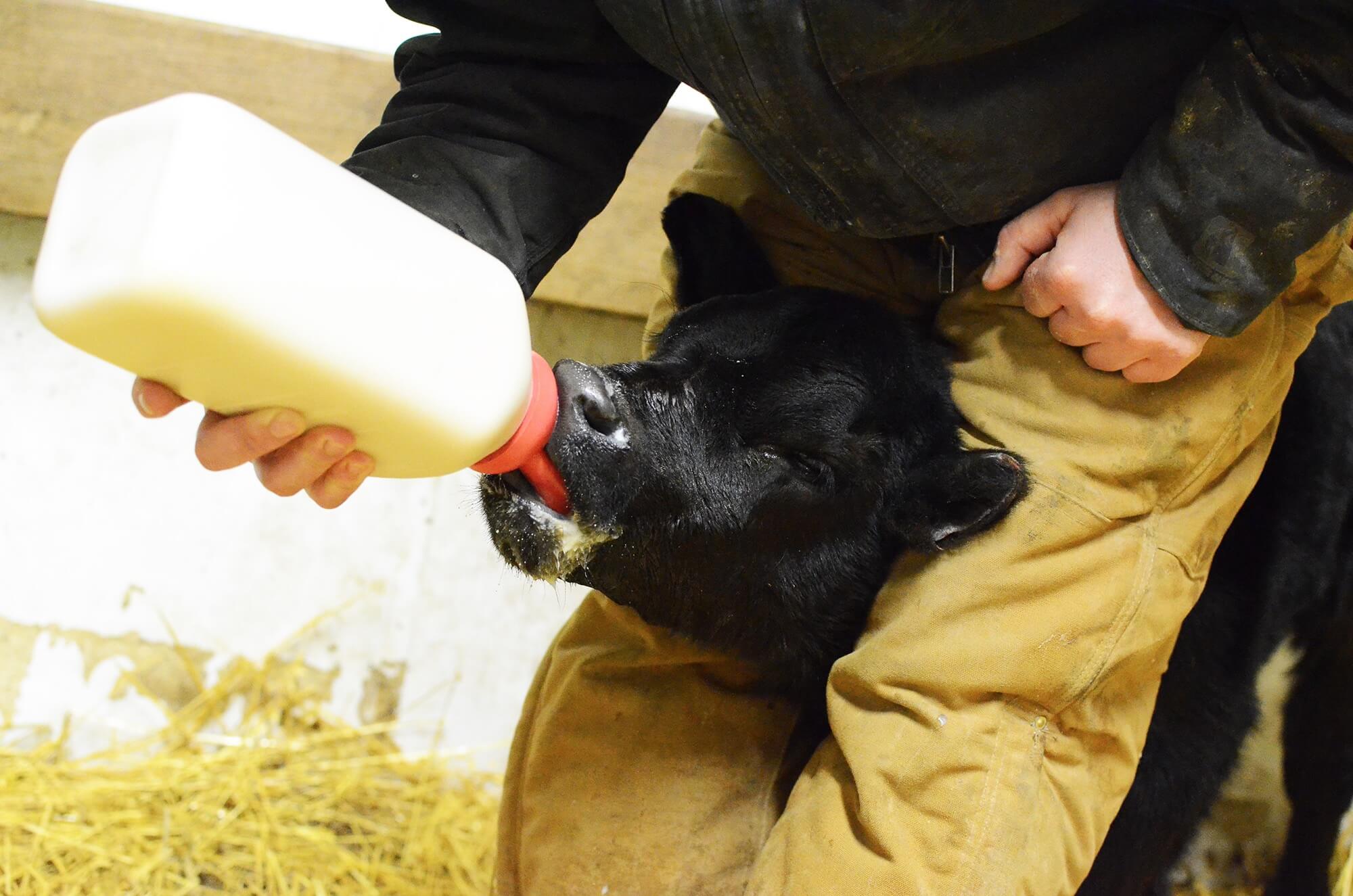
Human colostrum is crucial for the development of newborns. But if human colostrum isn’t available, can bovine colostrum be used instead?
Before I try to answer that question, let’s talk about the major differences between human and bovine colostrum.
Bovine colostrum contains less lactose (milk sugar) but higher amounts of the milk protein casein than human colostrum. The latter helps the development of the calf’s muscle tissue. That’s important because calves, like most mammals in the animal kingdom, need to be on their feet shortly after birth in case they have to run away from predators.
Human babies are immobile and dependent on their parents for many months, but their brains develop rapidly during the first few months of life and thus benefit from the glucose in colostrum and breast milk as a form of fuel.
Fun fact: Breastfed newborns use fat as their primary source of energy and are thus in ketosis until their parents introduce solid foods. That’s because breastmilk doesn’t have enough glucose to fulfill the energy needs of the fast-growing brain.
Additionally, there are significant differences in the makeup of the antibodies (immunoglobulins) contained in human and bovine colostrum.
For example, human colostrum doesn’t contain significant amounts of immunoglobulin G (IgG) antibodies to protect against bacterial and viral infections. That’s because the mother passes those to the fetus via the placenta.
As a result, the primary antibody in human colostrum is immunoglobulin A (IgA), which is important for, among other things, protecting the intestinal lining (epithelial cells) of the gut.
On the flip side, calves are born with no immune system and rely solely on colostrum for all the (IgG) antibodies necessary to fight infection and inflammation.
Despite those differences, there is sufficient scientific evidence to suggest that supplementing with bovine colostrum has health benefits for humans.
Benefits of Bovine Colostrum
Bovine colostrum is highly nutritious and contains significantly more nutrients than both transitional and mature milk.
Specifically, bovine colostrum has a more advantageous composition of both macronutrients (protein, fat and carbs) – and certain micronutrients (B vitamins, vitamin A, C and E, and magnesium) than regular cow’s milk.
However, it’s not the additional vitamins and minerals, but the proteins — including hormones, enzymes and antibodies — that provide the health benefits of bovine colostrum. The four most beneficial proteins in bovine colostrum are:
- Lactoferrin
- Growth factors
- Immunoglobulins
- Lysozyme
Lactoferrin
Lactoferrin helps with the absorption of iron (“ferrum” means iron in Latin) in the intestine and the delivery of this important mineral into cells. Some studies suggest that lactoferrin acts as a protective agent against bacterial, viral or fungal infection, and may help balance the immune system.
Additionally, lactoferrin displays important antioxidant, antimicrobial and immunomodulatory activities.
While scientists understand the general role of lactoferrin in the human body, more research is needed to identify the exact benefits of lactoferrin supplementation.
Growth Factors

Bovine colostrum contains about 50 growth factors (polypeptides) including epidermal growth factor (EGF), betacellulin (BTC), insulin-like growth factors, fibroblast growth factor 1 and 2 (FGF1 and FGF2) and platelet-derived growth factor (PDGF). All of those factors have a positive impact on cell growth and repair.
For example, insulin-like growth factors, including IGF-1 and IGF-2, can help stimulate the regeneration and proliferation of cells in the gut lining (epithelium).
Studies have shown that growth factors derived from bovine colostrum can turn on genes that promote the growth and regeneration of intestinal epithelial cells.
Considering the fact that the lining of the gut — which prevents pathogens from reaching your bloodstream — is only five to seven cells thick, it’s incredibly important to do everything you can to strengthen that barrier.
In fact, a compromised lining of the gut (also known as “leaky gut”) is one of the key drivers of metabolic disease, and the reason why I do everything I can do support the health of my gut and its microbes.
While your overall lifestyle and dietary habits play a major role in gut health, supplementing with colostrum could be another effective tool you can leverage.
Immunoglobulins

Immunoglobulins are antibodies that help your body fight bacteria, viruses and other pathogens. Studies have shown that supplementing with bovine immunoglobulins (from colostrum) may be helpful “to support immune function in vulnerable groups such as infants, children, elderly and immunocompromised patients.”
In other words, if you have a strong immune system, supplementing with colostrum might not offer you additional protection. But if you don’t, it’s worth considering.
Observing how COVID-19 managed to wreak havoc among certain demographics while leaving others largely unharmed, it’s no stretch to imagine that quite a few people have less-than-optimally functioning immune systems.
If you fall into one of the higher-risk groups, I highly recommend making changes to your lifestyle, and that you even consider taking supplements to help support your immune system.
Much like immunoglobulins, colostrum peptides can modulate the immune response of intestinal epithelial cells. In other words, certain building blocks of the protein found in colostrum can further help boost your immune system.
Lysozyme
Lysozyme is an antimicrobial enzyme that’s found in high concentrations in colostrum. One of its benefits is that it hydrolyses (breaks down) the cell walls of bacteria, thus rendering them ineffective.
Benefits of Bovine Colostrum Supplementation
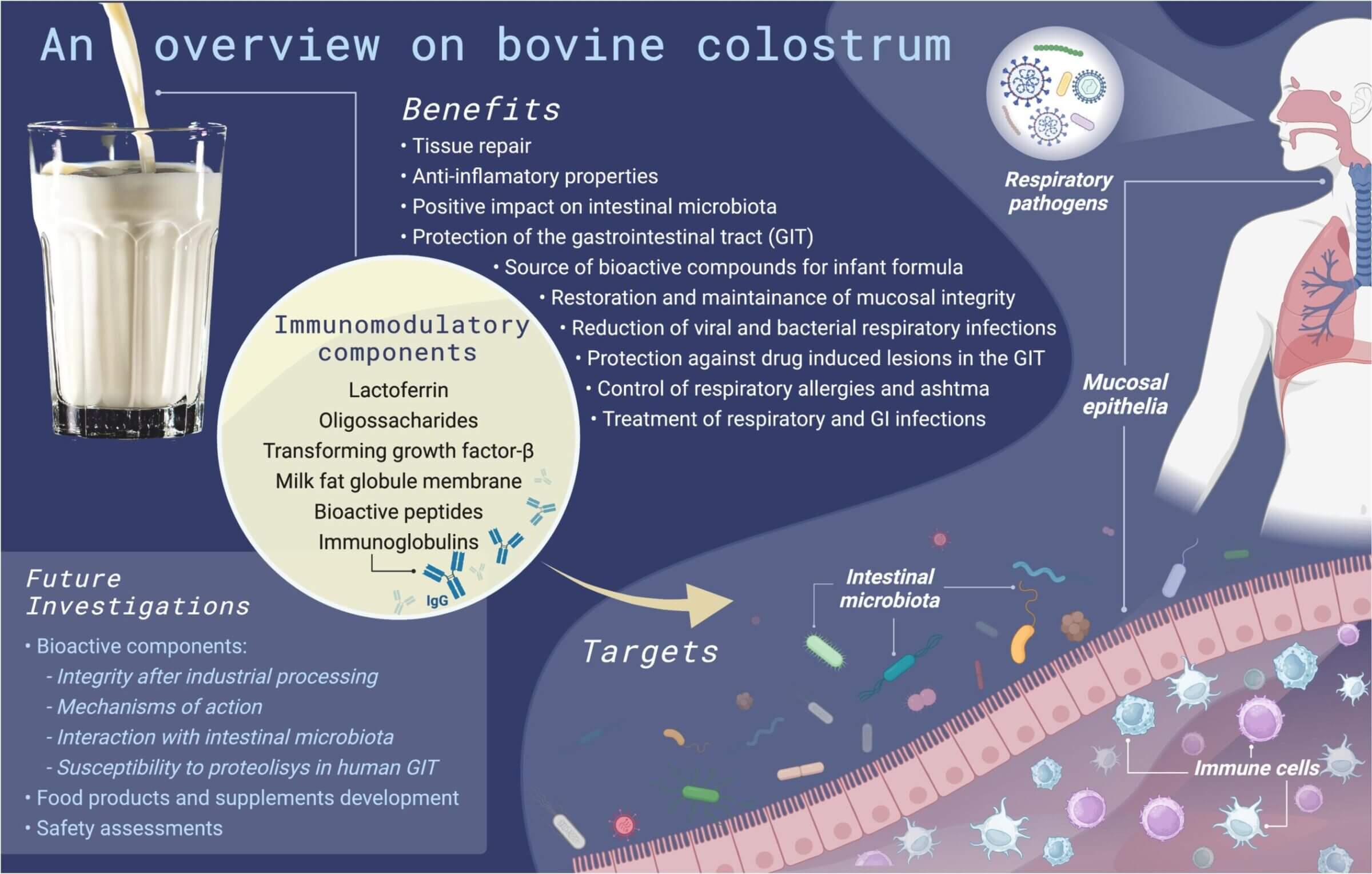
Any time I consider ingesting a compound that’s foreign to the human body — regardless of whether it’s a plant-based, animal-based or a synthetic compound — I ask myself two questions:
- What are the potential benefits?
- What are the potential side effects?
As far as bovine colostrum is concerned, I haven’t seen any scientific evidence showing negative side effects of supplementation in healthy adults or children.
However, if you suffer from lactose intolerance, you might experience GI upset after consuming bovine colostrum because of the residual amounts of lactose some supplements contain.
On the flip side, I’ve seen several studies indicating that supplementing with bovine colostrum can help with upper airway infections, gastrointestinal disorders (e.g., infectious diarrhea), the flu, athletic performance and more.
So let’s dive into the purported health benefits in some of the areas that I consider most relevant.
Influenza (Flu) Prevention

Based on an epidemiologic (observational) study from 2007, supplementing for eight weeks with orally-administered colostrum reduced the incidence of complications and hospital admissions (related to the flu) by 300%, even among people who received the influenza vaccination.
While observational studies (as opposed to clinical trials) have inherent problems and often can’t prove causation (only correlation), the potential benefits of supplementing with colostrum clearly outweigh the low risk of potential side effects.
So if you’re elderly or immunocompromised, and getting the flu would likely increase your risk of hospitalization or severe complications, you might want to consider supplementing with colostrum during the flu season.
Gastrointestinal Disorders and Immune Function
A study performed on children and immunocompromised adults (e.g., people with HIV infections) indicated that supplementing with bovine colostrum can prevent gastrointestinal tract infections (such as those caused by escherichia coli) or reduce their impact (i.e., prevent diarrhea).
The study’s authors concluded that, “the administration of passive immunity in the form of bovine immunoglobulins can be protective against a range of pathogens and is especially effective in immunocompromised individuals.”
In other words, colostrum has anti-inflammatory and antimicrobial properties that offer beneficial effects against pathogens.
As I mentioned above, given the low risk of potential side effects, I’d seriously consider supplementing with colostrum if you suspect that your immune system isn’t functioning properly due to intestinal permeability (leaky gut), a disturbed gut microbiome, or other causes.
Exercise Performance
Considering my relatively healthy lifestyle and everything I do to support my immune system, I don’t spend a lot of time thinking about supplements (with some exceptions, including freeze-dried organ meats and exogenous ketone supplements). However, what piqued my interest in colostrum was its potential to improve my athletic performance and recovery.
In a double-blind, randomized, placebo-controlled study conducted with soccer players, scientists concluded that supplementing for six weeks with low-dose bovine colostrum resulted in faster recovery and a better ability to maintain athletic performance.
Additionally, there is mounting evidence that supplementing with bovine colostrum “is beneficial for certain groups of athletes, such as those involved in strenuous training (e.g. endurance athletes), in terms of immunity and resistance to infection.”
That’s pretty cool, and perhaps reason enough to supplement with colostrum — even if you’re only a serious fitness enthusiast (like I am) and not a professional athlete.
Ethical Questions

One of the questions you have to ask yourself when you’re thinking about leveraging colostrum supplements is this: where did that colostrum come from, and what animal isn’t getting it because of you?
That’s why it’s important to only buy from supplement manufacturers that responsibly harvest the substance.
In the case of bovine colostrum, that means allowing the calf to drink first, and then only harvesting the excess bovine milk.
Recommended Colostrum Supplements
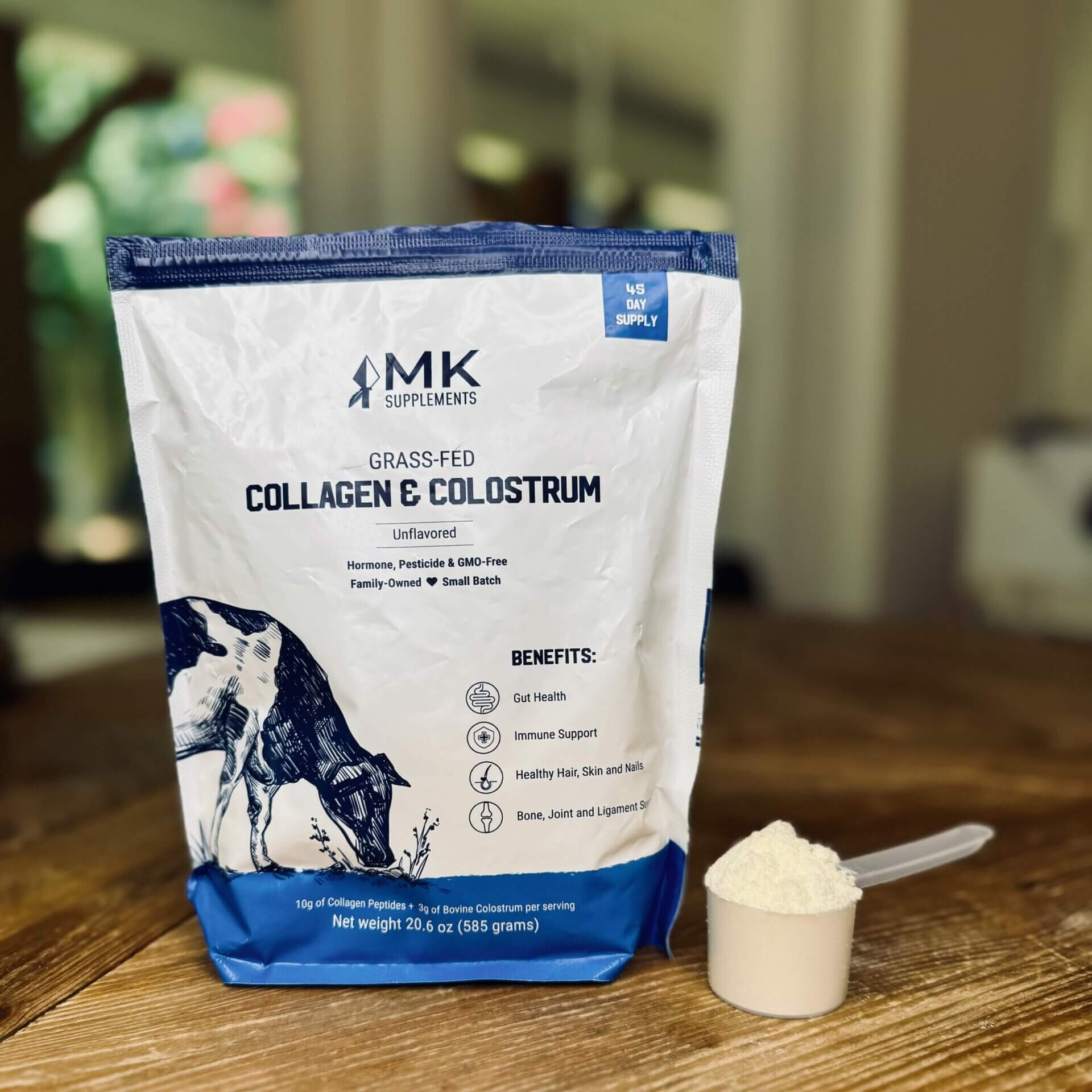
Three of my favorite bovine colostrum supplements are Equip’s Core Colostrum, Sovereign Laboratories’ Colostrum-LD, and my own brand’s Collagen & Colostrum.
I like Equip’s Core Colostrum because the product doesn’t contain any extra ingredients, fillers or flow agents — just pure colostrum. Sovereign Laboratories is another good brand that uses a special lipid coating to improve the absorbability of its colostrum. Unfortunately, the lipid coating is made from sunflower lecithin, which is a source of linoleic acid, an inflammatory polyunsaturated fatty acid that I discussed in great detail in my article on the health risks of saturated vs. polyunsaturated fatty acids.
Collagen & Colostrum combines two powerful substances to support gut integrity, immune function, and connective tissue health.
See my article on the best colostrum supplements for my full list of recommended products.
Frequently Asked Questions
While there is plenty of evidence to suggest that colostrum can reduce the rate of upper respiratory tract infections (e.g., rotavirus infections) in babies and children, I’ve only seen one case report to suggest that adults might benefit too.
Yes, you certainly can. There is plenty of evidence suggesting that bovine colostrum offers most of the same benefits to animals as it does to humans. In fact, colostrum supplementation appears to be a popular treatment method for animals among veterinarians.
Yes, you can give bovine colostrum to kids of all ages as a supplement — but I highly recommend talking with your pediatrician or lactation consultant first.
What I don’t recommend is giving your infant bovine colostrum instead of human breast milk. In other words, don’t stop breastfeeding your baby because you have access to bovine colostrum supplements.
If you have a “thumbs up” from your pediatrician to supplement with bovine colostrum, Sovereign Laboratories sells an infant and toddler version of its product.
Note that the kid version is the exact same formula as the adult version; it’s just the packaging and serving size recommendations that differ.
If your lifestyle is similar to mine and you’re already doing most things right to support your health and well-being, then you might not benefit from supplementing with colostrum — unless your goal is to improve your athletic performance.
However, if you’re immunocompromised, or suffer from autoimmune or metabolic conditions that negatively impact your immune system, you may benefit from bovine colostrum while also making improvements to your overall lifestyle.
Don’t consider colostrum (or any other supplement for that matter) a replacement for a healthy lifestyle. As I’ve mentioned elsewhere on my blog, dietary supplements are meant (as the name implies) to supplement an otherwise healthy lifestyle (not to replace it).
While human colostrum is definitely paleo, dairy products (including bovine colostrum) are not. However, many people who follow a Paleolithic diet consume certain dairy products, such as butter and cheese. If you’re one of them, you can certainly include bovine colostrum as well.
Technically, bovine colostrum is neither paleo-friendly nor carnivore-friendly. But as with some people on paleo diets, many followers of the carnivore diet consume dairy products and feel great doing so. If you’re one of them, feel free to supplement with bovine colostrum.
Bovine Colostrum Benefits: Final Thoughts
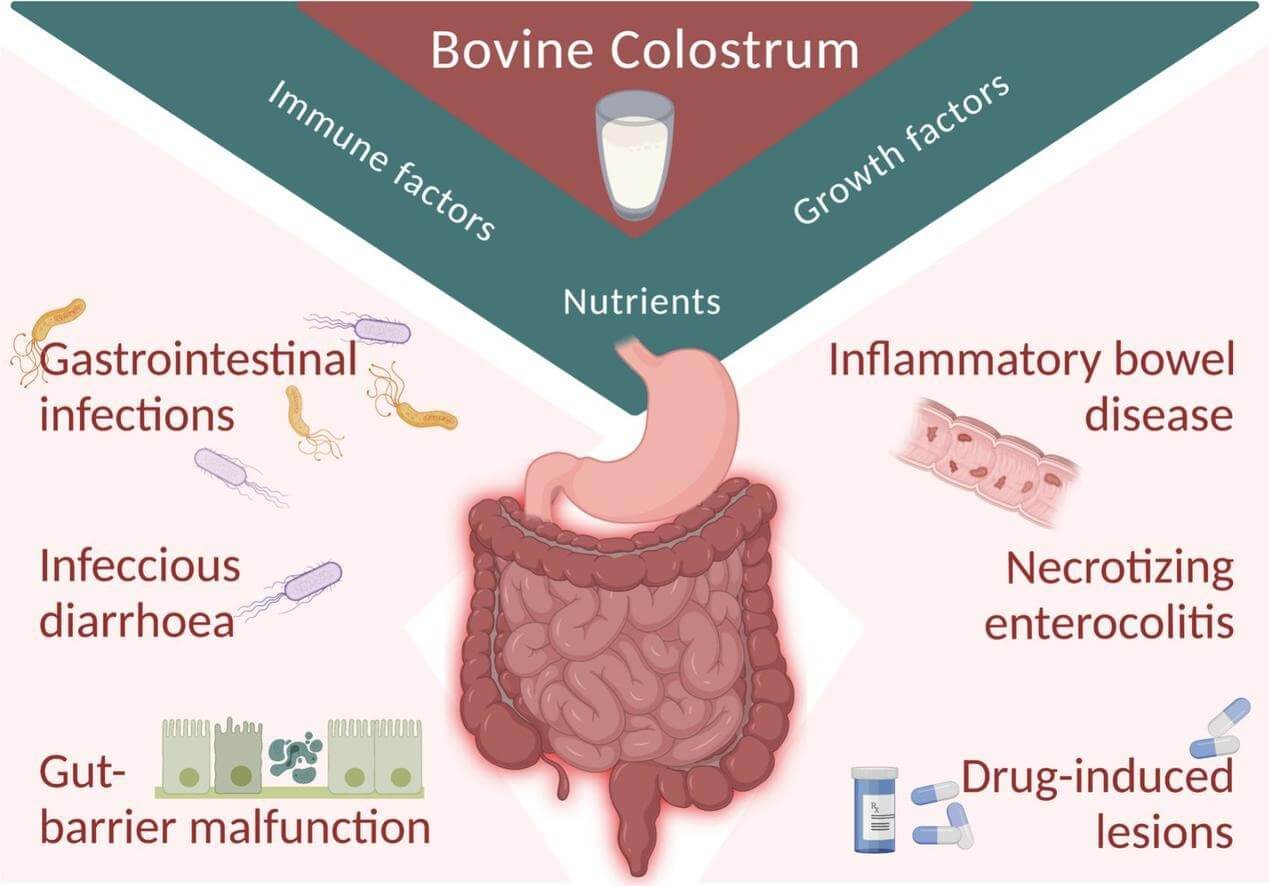
Based on the scientific research I’ve seen, I believe that bovine colostrum can have a positive impact on human health — especially among certain groups within the population (immunocompromised individuals, athletes and people with gut issues).
As a result, I’ll continue to strategically use bovine colostrum supplements for myself and other members of the Kummer tribe, including our dog.
Now I’d like to hear from you! Have you experimented with bovine colostrum supplements in the past? If so, what has your experience been?

Michael Kummer is a healthy living enthusiast and CrossFit athlete whose goal is to help people achieve optimal health by bridging the gap between ancestral living and the demands of modern society.
Medical Disclaimer
The information shared on this blog is for educational purposes only, is not a substitute for the advice of medical doctors or registered dieticians (which we are not) and should not be used to prevent, diagnose, or treat any condition. Consult with a physician before starting a fitness regimen, adding supplements to your diet, or making other changes that may affect your medications, treatment plan or overall health. MichaelKummer.com and its owner MK Media Group, LLC are not liable for how you use and implement the information shared here, which is based on the opinions of the authors formed after engaging in personal use and research. We recommend products, services, or programs and are sometimes compensated for doing so as affiliates. Please read our Terms and Conditions for further information, including our privacy policy.

Thanks for your thoughtful, well-documented, and informative post. I’m “investigating” bovine colostrum because ARMRA ads persistently appear on my FB feed (I’m “old”, thus FB). Like you, I believe informed lifestyle choices are the best “medicine”. I’m not big on supplementation (I’m a “food as medicine” type) and recognize it becomes harder to eat enough food to obtain the nutrients I need as I age. Will investigate your links to learn more. Thanks again Michael!
Thanks so much for your kind words! I’m glad you found the post informative. I completely agree—making informed lifestyle choices is really the best “medicine.” I get where you’re coming from with the food-as-medicine approach, and I think it’s great that you’re thoughtful about supplementation. As we age, it can definitely become harder to get all the nutrients we need from food alone, and that’s where something like bovine colostrum can really fill the gaps.
Feel free to dive into the links and see if it resonates with you. I’m always here if you have any questions or want to discuss it further. Thanks again for taking the time to investigate and for sharing your thoughts!
“As opposed to clinical trials.”
Ahahahahahahahahahahaha
I was wondering if you’ve checked out the “Wonder Cow” colostrum yet? Would like to know your thoughts in comparing with Equip. Also, how to tell how many igG is in Equip’s product? Wonder Cow shows 2g of Colostrum and 800mg igG.
Thanks!
Hey Dennis,
I had not heard about Wonder Cow but I suspect the nutritional profile is relatively similar. One difference is the source of the colostrum. WonderCow sources from US cattle and Equip from New Zealand cattle. NZ cattle can graze on fresh pasture all year round whereas domestic cattle are fed hay in winter. But all the raw milk I drink is from US cattle and I have no complaints. So I’d go with whatever brand you like better :)
I was going to buy the colostrum supplements that you recommend, but realized that they contain maltodextrin. Does that not bother you?
Where did you read that Sovereign Laboratories adds maltodextrin to their colostrum? I just checked the bags I have at home and none have it.
it says on the back of the bag that they use sunflower oils to process the product. I consider seed oils poison so I won’t be using this product. it’s too bad, because it sounds like a beneficial supplement, they just had to ruin it with sunflower oil, probably to save money.
I’m not a fan of seed oils either (as you probably know) but given my omega-3/omega-6 intake, I don’t think the amounts in colostrum are an issue. The reason why Sovereign Laboratories uses Sunflower Lecithin is because of their liposomal delivery process. I’d think that added to the cost of the product.
Great article. We run a raw dairy in Oregon, and this kind of information compiled in this way is super valuable. One note I would add under ethics is that dairy cows have been selected to produce far more milk then one calf needs, and the amount of colostrum they produce can easily be 4X what their calf needs. So at the first few milkings, we will typically give a half gallon to the newborn calf and have 3 half gallons to share with our herd share owners and private association members. Calves are not deprived in any way of what they need at most dairies. A calf has to have adequate colostrum to thrive. Colostrum given in the first few hours and days after birth, followed by a diet of exclusively fresh, raw milk from the herd for 3 months minimum, are all that is needed to ensure a long-lived and healthy cow. Same is true for humans (except it’s more like 6 months). ANY pharma interventions given in that “self-completion” period have negative consequences to long-term health of the individual and the herd.
Thanks Theo, great information!
Hi, I’m a nurse and after reading your article I’m disappointed that you didn’t include a list of the Research articles that you used. Could you please send me, or post, a list of the Research studies published that you read, and cited in your article. I would like to read the studies myself in order to determine if they were done using scientific principles, and see the sample size, Methods used, if they were double blind and if the results were statistically significant. I have only been able to find 2 studies and the sample sizes were very small, 16 subjects and 8 subjects. Your help in this matter would be greatly appreciated.
Hi Mary,
I linked out to studies several times throughout the article — basically for every claim that I made. Did you see those?
Cheers,
Michael
Hey Mary,
Michael cited may of his sources. Here’s something I found independent of Michael’s post you might find useful: https://www.ncbi.nlm.nih.gov/pmc/articles/PMC8840100/
I thought you might like to read my Blog about Bovine Colostrum and My New Experiment: https://drdanenberg.com/bovine-colostrum-my-new-experiment/